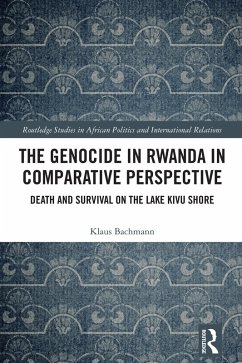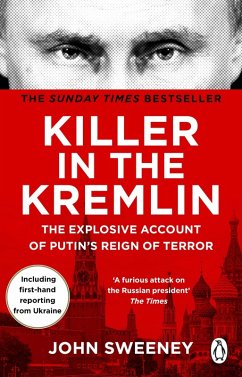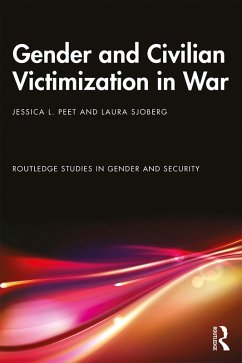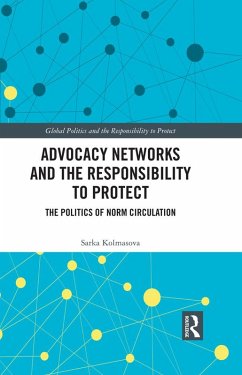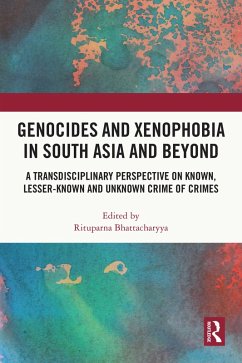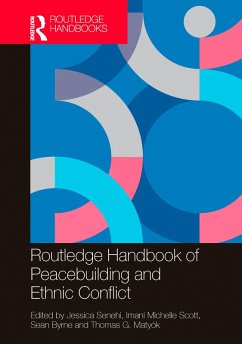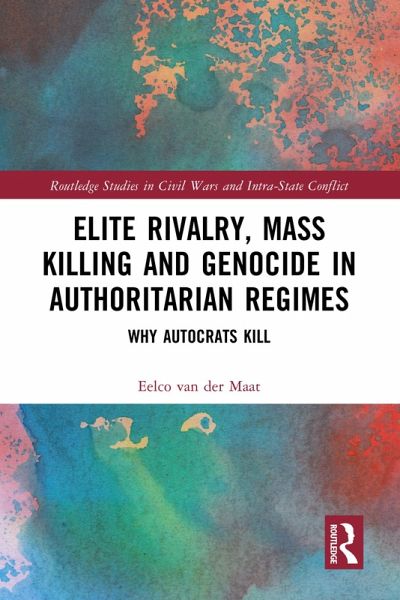
Elite Rivalry, Mass Killing and Genocide in Authoritarian Regimes (eBook, ePUB)
Why Autocrats Kill
Versandkostenfrei!
Sofort per Download lieferbar
42,95 €
inkl. MwSt.
Weitere Ausgaben:

PAYBACK Punkte
21 °P sammeln!
This book explains how mass killing is driven by elite politics within authoritarian regimes.Mass killing and genocide defy reason and explanation. How can genocidal elites present defenceless victims as an existential threat? Why use indiscriminate killing that drives victims to coordinated resistance? Mass killing seems counterproductive, irrational, and therefore inherently ideological. By building on new insights on authoritarian politics, this book argues that mass killing is not ideological, but instead is a rational response to elite rivalry within authoritarian regimes. Mass killing is...
This book explains how mass killing is driven by elite politics within authoritarian regimes.
Mass killing and genocide defy reason and explanation. How can genocidal elites present defenceless victims as an existential threat? Why use indiscriminate killing that drives victims to coordinated resistance? Mass killing seems counterproductive, irrational, and therefore inherently ideological. By building on new insights on authoritarian politics, this book argues that mass killing is not ideological, but instead is a rational response to elite rivalry within authoritarian regimes. Mass killing is therefore not driven by rivalries between groups, but by elite rivalry within groups. In Rwanda, for example, the genocide was not driven by conflicts between Hutu and Tutsi, but by conflicts within the Hutu regime. The work demonstrates how mass killing helps elites build coalitions with groups that benefit from violence and how it divides support coalitions of rival elites. Mass killing can therefore help elites win dangerous internal rivalries. By qualitatively and quantitatively exploring elite rivalry and mass killing, this book provides a new explanation for a host of mass killings and genocides. It demonstrates that well-known genocides, such as the Rwandan and Cambodian genocides, which are seemingly ideological are instead better explained by elite rivalry. Mass killing is therefore not driven by the random madness of leaders, nor by the desire to kill an outgroup, but by the internal threats that authoritarian elites face.
This book will be of much interest to scholars and students of civil wars, genocide, political violence, and International Relations in general.
Mass killing and genocide defy reason and explanation. How can genocidal elites present defenceless victims as an existential threat? Why use indiscriminate killing that drives victims to coordinated resistance? Mass killing seems counterproductive, irrational, and therefore inherently ideological. By building on new insights on authoritarian politics, this book argues that mass killing is not ideological, but instead is a rational response to elite rivalry within authoritarian regimes. Mass killing is therefore not driven by rivalries between groups, but by elite rivalry within groups. In Rwanda, for example, the genocide was not driven by conflicts between Hutu and Tutsi, but by conflicts within the Hutu regime. The work demonstrates how mass killing helps elites build coalitions with groups that benefit from violence and how it divides support coalitions of rival elites. Mass killing can therefore help elites win dangerous internal rivalries. By qualitatively and quantitatively exploring elite rivalry and mass killing, this book provides a new explanation for a host of mass killings and genocides. It demonstrates that well-known genocides, such as the Rwandan and Cambodian genocides, which are seemingly ideological are instead better explained by elite rivalry. Mass killing is therefore not driven by the random madness of leaders, nor by the desire to kill an outgroup, but by the internal threats that authoritarian elites face.
This book will be of much interest to scholars and students of civil wars, genocide, political violence, and International Relations in general.
Dieser Download kann aus rechtlichen Gründen nur mit Rechnungsadresse in A, B, BG, CY, CZ, D, DK, EW, E, FIN, F, GR, HR, H, IRL, I, LT, L, LR, M, NL, PL, P, R, S, SLO, SK ausgeliefert werden.






